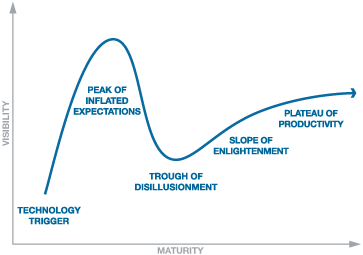|
A great example of video-based education from Big Think. Michio Kaku provides an engaging introduction to physics and in the process interweaves history of British royalty, astronomy and comets, and ends up talking about the Higgs Boson, string theory, multiverses, and the Big Bang. This kind of content inspires curiosity. It shows how the core concepts are relevant to the world we live in, and places them in historical context. While I'm on the general topic, here's another book recommendation, one of my favorites: A Short History of Nearly Everything by Bill Bryson. Bryson spends time discussing the Big Bang and continues on to provide an entertaining summary of natural history, emergence of life on earth, human origins, etc., with an emphasis on telling the story of the few and generally eccentric group of geniuses who have driven the progression of discovery and technology that the world enjoys today. Here's Bryson giving a lecture to the Royal Society. As enjoyable as the lecture is, his book is better, something to read and re-read every couple of years, and have your children read it too. In my opinion, this should be the starter science textbook for all high school students.
0 Comments
There is a tremendous amount of variability in the quality and effectiveness of digital education products on the market. As a result, it is easy to find cases where e-learning did not live up to its promise. According to the Gartner Hype Cycle, disruptive technologies typically go through an evolution that includes the "peak of inflated expectations", followed by a "trough of disillusionment". After the trough, the technology matures and fundamentally changes the world, and creates tremendous wealth for those who time the cycle correctly. If we look at 3d printing, for instance, the peak of inflated expectations appears to have occurred at the end of 2013, when the stock price of 3D Systems rose to 95.40, and Stratasys traded at 134.87. As of Friday they were at 12.21 and 28.27 respectively. But if you look into what is happening globally with 3d printing, it is hard to deny that it is in the process of completely changing manufacturing, with people thinking of new applications for the technology daily. Peter Diamandis says, "Recognizing when a technology is exiting the trough of disillusionment and beginning to rise up the slope of enlightenment is critical for entrepreneurs." When it comes to learning technologies, we can see that they are being adopted very rapidly. But the actual educational results, in the classroom, in the corporate world, are highly variable. Much of the variability is due to the fact that these technologies are new, and much of what is being done is still experimental on some level. Part of the challenge is that educational technology companies are still in the early stages of basing instructional design on results- and data-driven approaches. A result is an over-reliance on theory. The companies to watch are those that are taking solidly learner-centric approaches that result in high course completion rates. Udacity is run by Sebastian Thrun, an expert in artificial intelligence who formerly ran GoogleX, the company's hardware innovation lab. Udacity offers affordable technology courses that keep students engaged and offer real career benefits. Enter: Nanodegrees. The MIT Technology Review recently called Udacity "Uber for Education". Thrun comments: We very deeply believe, very passionately believe, that learning by doing trumps learning by listening. We believe the ultimate experience that really makes the master is to do something, build something, invent something, design something, code something. At Udacity, we built an Uber-like platform. With Uber any normal person with a car can become a driver, and with Udacity now every person with a computer can become a global code reviewer. And the mechanics for the code reviewer are the same: you’re being paid per code review, and you’re being assessed by your students. Our global code reviewers, on average, out of a five-point possible score, get 4.8 points. They give students back a very insightful and detailed, human-level, expert-level review of their work, typically within two hours, including detailed feedback on coding style, what works, what doesn’t work, and so on. Just like Uber, we’ve made the financials line up. The best-earning global code reviewer makes more than 17,000 bucks a month. I compare this to the typical part-time teacher in the U.S. who teaches at a college—they make about $2,000 a month. Sometimes lost in the controversies over Common Core, we are in a great period of experimentation and positive change in the US education system. The Atlantic reports on The Town That Decided to Send All Its Kids to College: College was never much of an option for most students in this tiny town of 1,200 located in the woods of the Manistee National Forest. Only 12 of the 32 kids who graduated high school in 2005 enrolled in college. Only two of those have gotten their bachelor’s degree. |
Intelligence AmplifiedArchives
April 2023
CategoriesRead our magazine on Flipboard!
|


